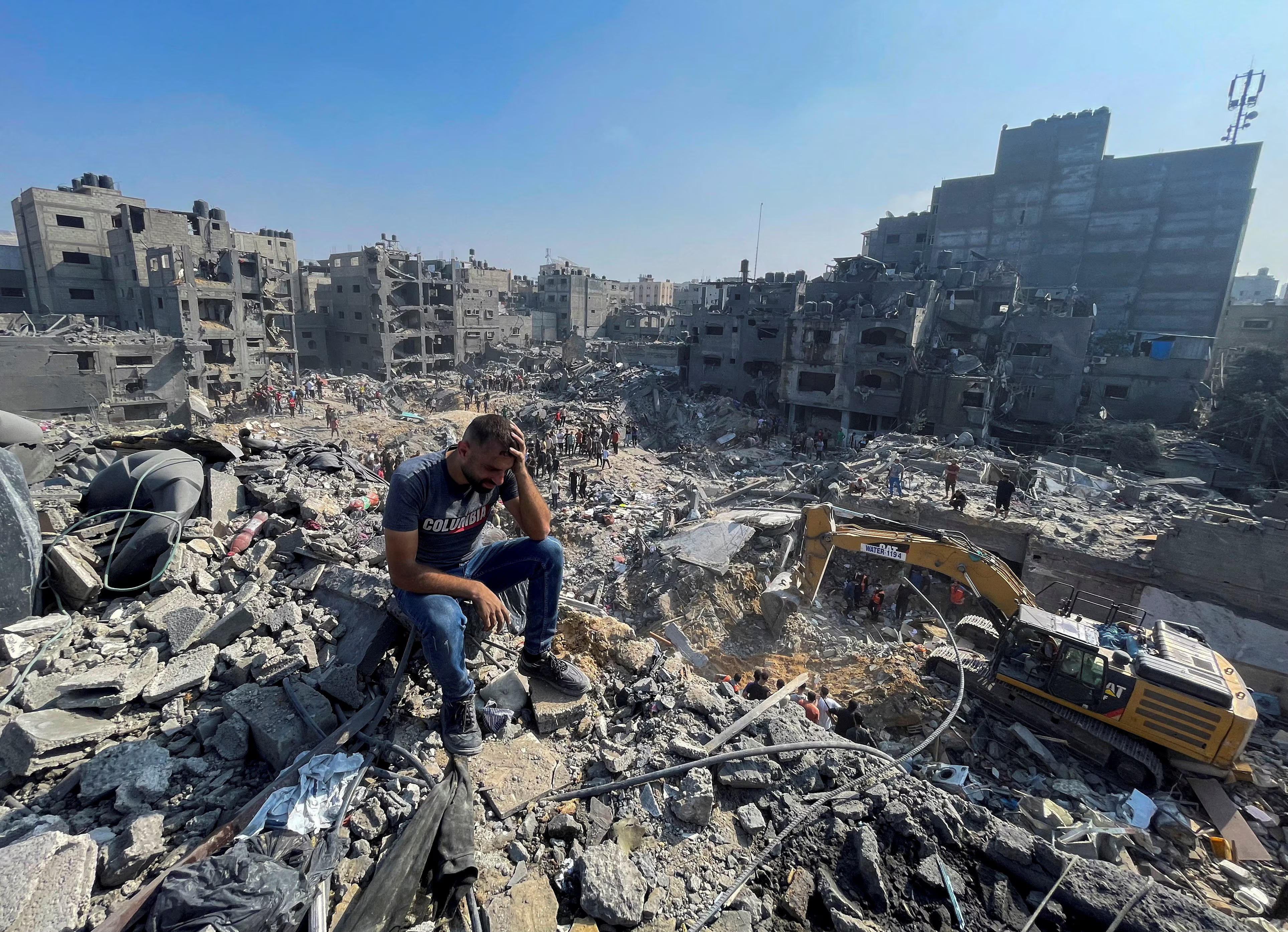Gaza’s endless waiting and the cruel cycle of hope and despair

In Gaza, hope has become both a necessity and a burden. After years of broken promises, failed ceasefires, and devastating wars, Palestinians are once again clinging to the faint possibility that a powerful external actor, this time US President Donald Trump, might succeed where others have failed and bring an end to a conflict that has defined and destroyed generations.
The desperation was palpable in recent interviews with Gazans. "We want President Trump to keep pushing for an end to the war," said 32-year-old Saoud Qarneya, a resident of Gaza City, whose house was flattened in Israeli bombings. "Everything has been damaged, everything is destroyed." For Saoud, and millions like her, the plea is less about admiration for Trump and more about exhaustion with endless war and diplomatic stagnation. Two years into Israel's latest offensive, which began in October 2023, at least 67,000 Palestinians have been killed, while more than two million remain trapped in what has long been described as one of the world's most densely populated open-air prisons. Gaza has become a landscape of ruins with homes reduced to rubble, schools and hospitals bombed, and entire neighbourhoods turned into graveyards.
However, after multiple failed ceasefires and false dawns, many now cling to the idea that perhaps, this time, a political shake-up in Washington might alter the calculus. Some view Trump as unpredictable and therefore capable of driving change. Others are simply too tired for the faintest prospect of relief. "Every day of delay costs lives in Gaza," said Tamer al-Burai, a businessman displaced with his family in central Gaza. "Maybe Trump will bring us real peace this time."
But history offers little reason for optimism. The pattern over the years has been tragically consistent: high-profile negotiations, temporary truces, and renewed bombardment. This cycle of ceasefire and escalation has become so familiar that many no longer dare to believe peace is possible. This war has been unbelievably brutal. Besides the widespread devastation, restrictions on humanitarian aid have pushed Gaza into famine. The United Nations has repeatedly warned of catastrophic humanitarian conditions, yet global diplomatic responses remain muted and fragmented.
For Palestinians in Gaza, waiting has become a central part of existence. They wait for electricity, water, aid trucks, and for the skies to quiet down. They wait for ceasefires that may or may not materialise, for negotiations that may collapse at any moment, for leaders to stop using their lives as bargaining chips. This waiting is both a survival strategy and, in a quiet way, an act of resistance: an insistence on living despite everything.
Aya, 31, who was displaced with her family to Deir Al-Balah in central Gaza, captured this sentiment poignantly. "Maybe there is a chance the war ends…" she said. "We feared, however, that Israel would not stop. Netanyahu always finds a way to continue the war."
This oscillation between hope and despair has deep psychological consequences. For children growing up in Gaza, war is not an interruption of normal life—it is their normal life. Entire generations have known nothing but displacement, bombings, and the constant threat of death. For adults, the trauma compounds with each new round of violence. Many Gazans have lived through three, four, or even five wars in their lifetime. They rebuild homes, schools, and communities, only to watch them collapse again.
The international community has been both a witness and, in many ways, a participant in this cycle. Diplomatic statements expressing "concern" are rarely followed by decisive action. Ceasefire negotiations are often rushed, fragile, and lack enforceable mechanisms. Violations go unpunished. Calls for accountability are sidelined by geopolitical interests. As a result, Gazans have learned to expect very little from the world.
The current round of waiting centres on whether Trump's 20-point proposal aimed at ending the war in Gaza might change anything.
But Gaza's plight should not hinge on the whims of any single political figure. The problem is not the lack of negotiations; it is the lack of accountability and political will to enforce international law. Israel's military actions, including targeting civilian infrastructure and restricting aid, have been widely condemned by human rights organisations. Yet, without consequences, these condemnations ring hollow.
Breaking this cruel cycle requires more than a mediator. It requires a fundamental shift in how the international community engages with the conflict: prioritising civilian protection, ensuring accountability for violations of international humanitarian law, and addressing the root political causes rather than managing symptoms. It means empowering Palestinian voices in any negotiation, not sidelining them. It means treating Gaza not as a geopolitical chessboard but as a home to millions of human beings who deserve security, dignity, and a future.
For now, Gazans wait again. They wait for the bombs to stop, for borders to open, for a ceasefire that holds, for a future that has always been just out of reach. This endless waiting is not just a tragedy; it is an indictment of a world that has grown accustomed to watching suffering from a distance.
Shabbir Ahmed is a research fellow at icddr,b. He can be reached at shbbir.ahmed@icddr.org.
Views expressed in this article are the author's own.
Follow The Daily Star Opinion on Facebook for the latest opinions, commentaries and analyses by experts and professionals. To contribute your article or letter to The Daily Star Opinion, see our guidelines for submission.



 For all latest news, follow The Daily Star's Google News channel.
For all latest news, follow The Daily Star's Google News channel. 

Comments